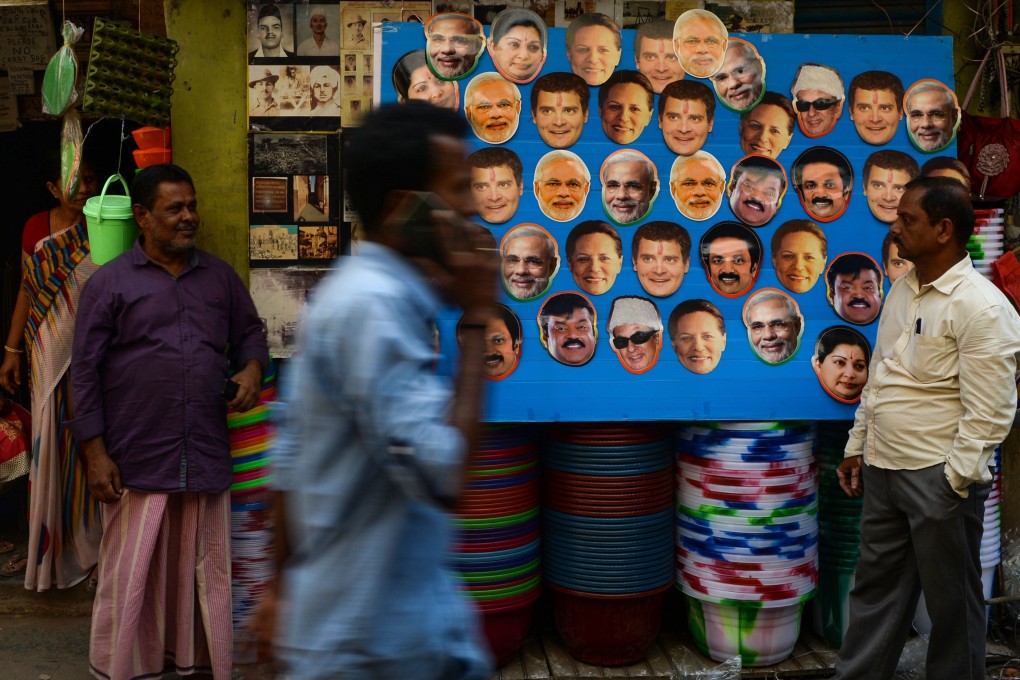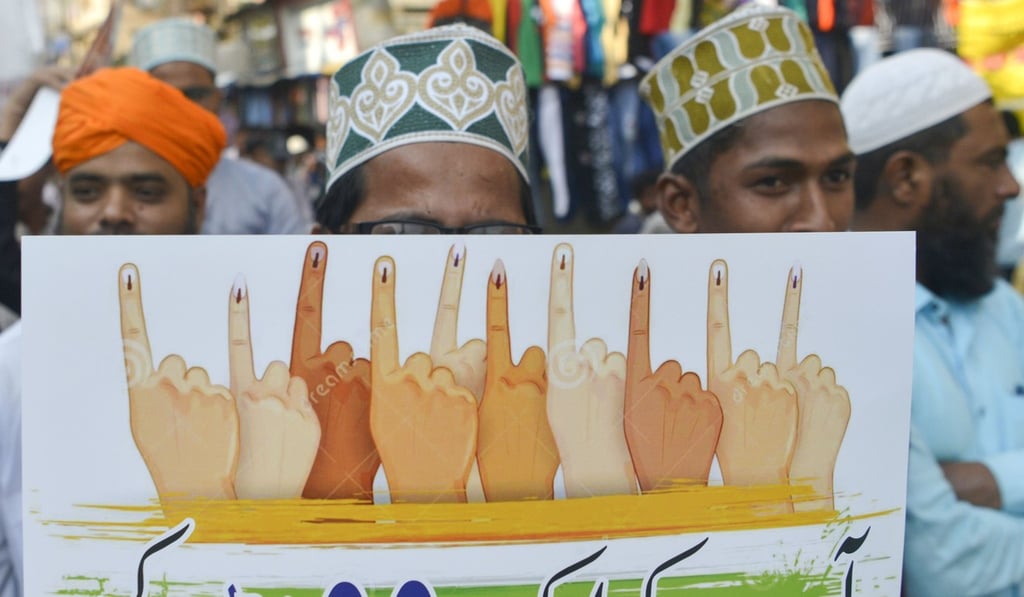A battle for plural, secular India as 900 million people gear up to vote
- The principles of liberty and citizen equality that are enshrined in the constitution are being threatened by a strengthening movement of Hindu nationalism under Modi’s rule. Yet, where is the credible alternative?

By way of numbers, this is the biggest electoral exercise in the world and ballot papers and officials will be spread across one million polling booths installed with electronic voting machines and a “voter verifiable paper audit trail” to minimise fraudulent practices – a charge often made in earlier elections. In addition, the Election Commission of India will deploy intrepid officials who travel on elephant, camel or yak – or just walk – to the most remote hamlets across the length and breadth of the country to ensure that every eligible voter can exercise his or her franchise.
At stake this time is a battle for the very idea of India, which has been held up as a democracy committed to a plural, secular and liberal ethos. In India, there should be no citizen discrimination on the basis of religion. The constitution adopted in January 1950 enshrined these principles and values and, barring a brief period when then prime minister Indira Gandhi imposed an emergency (1975-1977), there was an implicit acceptance that freedom, unity and equality were inherent in India’s vast diversity.
In this nation of 1.35 billion people, the diversity is bewildering. While Hindus constitute the majority religion (almost 80 per cent), the Muslim population, at about 180 million, is under 15 per cent and is the largest “minority”. Only in India could a demography of this order be referred to as a minority.

